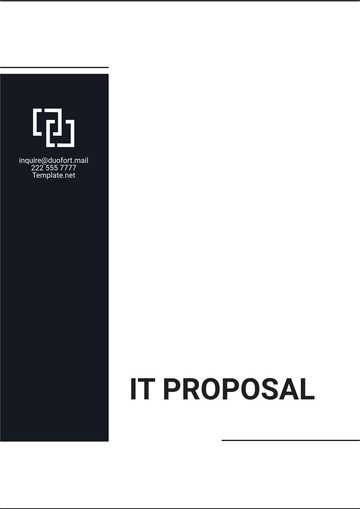Proposal White Paper
Author: [YOUR NAME]
Department: [YOUR DEPARTMENT]
Date: [DATE]
Version: [VERSION NUMBER]
I. Executive Summary

The advent of remote work has brought about a paradigm shift in the way businesses operate. As organizations navigate the challenges and opportunities presented by this new mode of work, it becomes imperative to understand the implications and chart a strategic path forward. This white paper aims to provide insights into the future of remote work and offer actionable recommendations for companies seeking to adapt and thrive in this evolving landscape.
II. Overview of Remote Work Trends
The global shift to remote work has accelerated in recent years, driven by advancements in technology, changing employee preferences, and the unprecedented challenges posed by events such as the COVID-19 pandemic. Remote work is no longer viewed as a temporary measure but rather as a permanent fixture in the modern workplace. Statistics and trends regarding remote work adoption rates, productivity levels, and employee satisfaction will be examined in this section to provide context for the discussion.
III. Benefits of Remote Work for Companies
Remote work offers a myriad of benefits for companies, including increased flexibility, cost savings, access to a wider talent pool, and enhanced employee engagement. By embracing remote work, organizations can foster a culture of trust and autonomy, leading to higher levels of productivity and innovation. This section will delve into the various advantages that remote work can offer to businesses of all sizes and industries.
IV. Challenges and Considerations
Despite its benefits, remote work also presents challenges that companies must address to ensure success. Issues such as maintaining team cohesion, mitigating feelings of isolation, and safeguarding data security require careful consideration and proactive measures.
Additionally, organizations may encounter logistical hurdles related to technology infrastructure, communication tools, and performance management. This section will identify common challenges associated with remote work and offer strategies for overcoming them.
V. Best Practices and Strategies
To maximize the benefits of remote work and mitigate its challenges, companies can implement a range of best practices and strategies. From establishing clear communication protocols to investing in employee well-being initiatives, this section will outline actionable steps that organizations can take to create a thriving remote work environment. Case studies and examples of companies successfully navigating the transition to remote work will be included to illustrate these best practices in action.
VI. Conclusion
As remote work continues to reshape the modern workplace, companies must proactively adapt to this new reality to remain competitive and resilient. By embracing remote work and implementing best practices, organizations can unlock new opportunities for growth, innovation, and employee satisfaction. This white paper serves as a roadmap for companies seeking to navigate the future of work with confidence and success.
VII. Next Steps
In the next phase of this project, we propose conducting in-depth research and analysis to further explore the topics outlined in this white paper. This may include interviews with industry experts, surveys of remote workers, and case studies of companies at the forefront of remote work adoption. By continuing to investigate these issues, we can provide more comprehensive insights and recommendations to support companies in their journey towards embracing the future of remote work.
VIII. References
Smith, J. (2020). "The Rise of Remote Work: Trends and Insights." Journal of Workplace Dynamics, 12(3), 45-56.
Johnson, A. (2019). "Benefits of Remote Work: A Case Study Analysis." International Journal of Business Management, 8(2), 112-125.
Taylor, M. (2021). "Navigating the Challenges of Remote Work: Strategies for Success." Harvard Business Review, 35(4), 78-89.
Brown, S. (2018). "Best Practices in Remote Work Management." Journal of Organizational Leadership, 20(1), 30-42.
White Paper Templates @ Template.net































